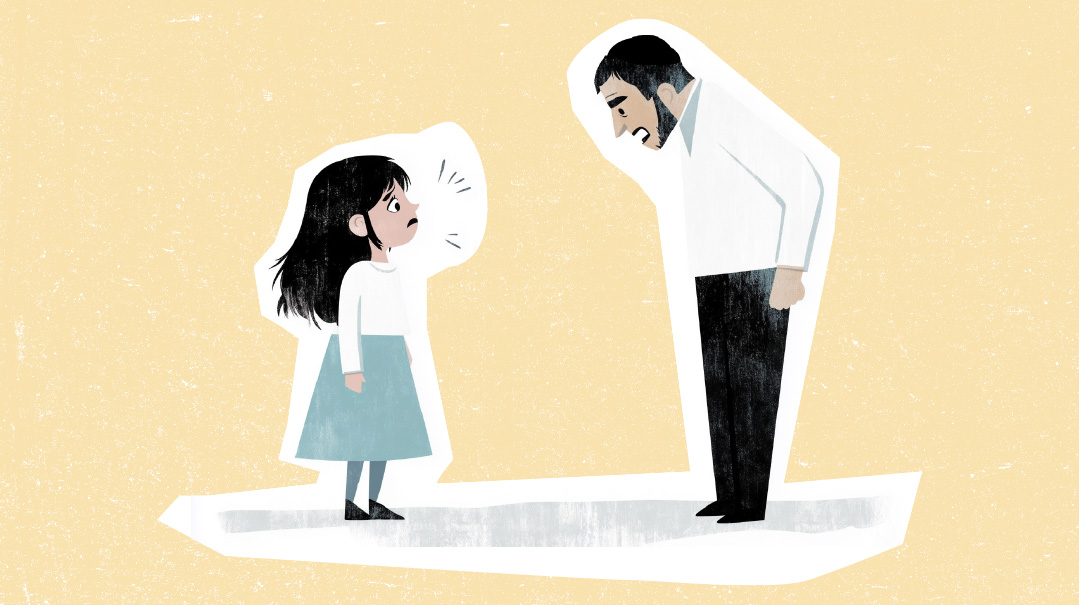“My Child Wants Hugs and I Can’t Give Them”

Our desire for physical closeness with other people depends on many factors

I have a very hard time connecting with my eight-year-old daughter, particularly when it comes to touch. I’m not a very touchy-feely person with any of my bigger kids, but when this particular daughter sits near me on the couch, it really bothers me. It’s obvious that she’s waiting for hugs and kisses, and I often just pretend I haven’t gotten her nonverbal message!
Over the years, I’ve made a conscious effort to give her hugs because I know she needs them. I’m not sure why it’s so hard for me, but I have a lot going on, and I don’t feel able to do deep psychotherapy to try to untangle this.
What prompted me to write is what happened tonight, when I was showing her pictures of when she was little. In one picture, I was holding her, and she reached over and kissed me in the picture, saying, “You don’t like when I kiss you, so I’ll kiss you in the picture.” Ouch!
My question is this: Do I make a point of overcoming my resistance and kissing her regularly, even though if she reciprocates, I will inwardly recoil, or am I making things worse if I do this while my feelings don’t match? Would it be better to concentrate on giving her love in other ways (attention, compliments, etc.) that I can handle without this tremendous inner resistance?
Our desire for physical closeness with other people depends on many factors. First, some of us are more naturally drawn to this form of connection than others. There are the “touchy-feelies,” the “hands-off” people, and everything in between. This inborn proclivity for physical affection is a temperament like any other and does not usually change over one’s lifetime.
Then there is trauma-induced touch aversion. This is a developed dislike of touch that occurs after experiencing violation that created mistrust and a corresponding strong desire for self-protection. It’s true that trauma treatment can sometimes help restore one to one’s pre-trauma level of touch attraction. However, a fuller recovery is most likely to be achieved when specific therapy for intimate touch is also undertaken — a type of work conducted by specialized therapists.
The fact that you feel more comfortable with other children in the family suggests that neither of these factors is what is at play in your case. That is, someone who is touch-aversive would usually be that way across the board. As you yourself mention, you have a naturally low-touch interest, but at least this low interest is active when it comes to your other kids. However, you have a specific aversion toward this one child, which lowers your touch interest to off-the-chart completely — all the way, in fact, to a type of disgust. This isn’t your fault. It’s akin to not liking a particular food: Something that happens in us rather than something that is consciously directed by us. And also similarly, it’s something that is very difficult and often impossible to change.
There are any number of reasons why your body is reacting to your daughter this way — perhaps she reminds you of someone you dislike or perhaps her energy, look, odor, or neediness are repugnant to you. Nonetheless, knowing the reason is unlikely to change your physical response.
Fortunately, there may be an alternative way to help meet at least some of your daughter’s need for loving touch. Many people with hug and kiss aversion are totally fine with other types of touch such as neck, back, hand, or foot massage. Take a look at a little self-help book on hand reflexology, for example, and offer to use this technique on your daughter. You’re likely to see that you can offer this kind of physical connection without being untrue to yourself or her.
Still, setting boundaries will remain important: You’re not going to become her on-call personal masseuse! Feeling free to limit this “service” will help reduce negative reactions on your part while ensuring that your child gets occasional authentic caring touch. If alternative touch doesn’t work for you, then I suggest you show your love in other ways. The harm of mixed-message touch (“You’re lovable but also repulsive”) is likely to outweigh all other factors. It would be better to stick to the occasional hugs you’re already able to provide along with other forms of affection.
(Originally featured in Family First, Issue 904)
Oops! We could not locate your form.





